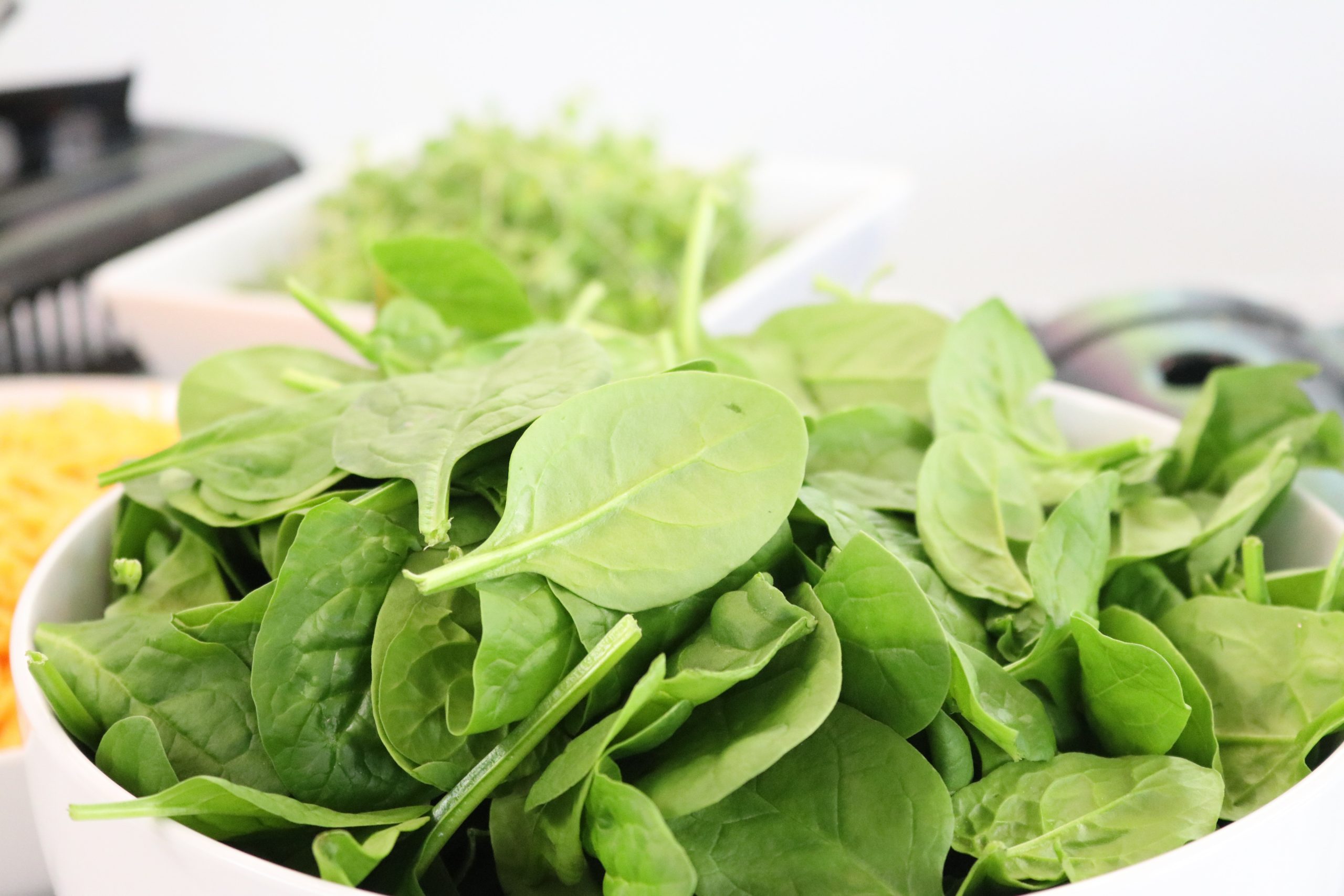
Spinach is a leafy green vegetable that is highly nutritious and versatile. Here are some tips for growing and using spinach:
- Growing spinach: Spinach is a cool-weather crop that prefers well-draining soil and partial shade. It can be grown from seeds or seedlings and should be kept evenly moist throughout the growing season. Harvest spinach when the leaves are 3-4 inches long.
- Cooking with spinach: Spinach can be used in a variety of dishes, from salads and smoothies to sautés and soups. It is best when lightly cooked, as overcooking can cause it to become mushy and lose some of its nutrients.
- Nutritional benefits: Spinach is packed with nutrients such as vitamins A, C, and K, as well as iron, calcium, and folate. It is also low in calories and high in fiber, making it a great addition to a healthy diet.
- Storing spinach: Fresh spinach can be stored in the refrigerator for up to a week. To prolong its freshness, rinse and dry the leaves, then store them in a plastic bag or container with a paper towel to absorb excess moisture.
Spinach is a delicious and healthy vegetable that is easy to grow and cook with. Incorporate it into your meals for a boost of nutrition and flavor.
How to grow Spinach in Home Garden?
Spinach is a leafy green vegetable that is relatively easy to grow in a home garden. Here are some steps to help you grow spinach:
- Choose a planting location: Spinach prefers cool weather and partial shade, so choose a location that receives at least four to six hours of sunlight per day but also has some shade during the hottest part of the day. The soil should be well-draining and rich in organic matter.
- Plant the seeds: Plant spinach seeds directly in the soil about 1/2 inch deep and 2-3 inches apart. You can also start seeds indoors about 4-6 weeks before the last expected frost date in your area and then transplant them outdoors once they are established.
- Water the spinach: Keep the soil moist but not waterlogged. Water regularly to prevent the soil from drying out.
- Fertilize the spinach: Spinach benefits from a balanced fertilizer, such as a 10-10-10 blend, applied once every four to six weeks.
- Thin the seedlings: Once the seedlings have grown to about 2 inches tall, thin them out so that they are spaced about 4-6 inches apart. This will allow them to grow and mature properly.
- Harvest the spinach: You can begin harvesting spinach once the leaves are large enough to eat, usually about 40-50 days after planting. Harvest the outer leaves first, leaving the inner leaves to continue growing.
Health Benefits of Spinach
With these steps, you should be able to grow healthy and delicious spinach in your own garden.
Spinach is a leafy green vegetable that is packed with nutrients and health benefits. Here are some of the key benefits of spinach:
- Rich in nutrients: Spinach is high in vitamins A, C, E, and K, as well as minerals such as iron, calcium, and potassium.
- Supports bone health: The high levels of vitamin K and calcium in spinach can help promote strong bones and prevent osteoporosis.
- Good for digestion: Spinach contains fiber, which can help regulate digestion and prevent constipation.
- Anti-inflammatory properties: Spinach contains anti-inflammatory compounds, which can help reduce inflammation in the body and alleviate symptoms of inflammatory conditions such as arthritis.
- May improve eyesight: The high levels of vitamin A and other antioxidants in spinach may help prevent age-related macular degeneration and other vision problems.
- Lowers blood pressure: Spinach contains nitrates, which can help relax blood vessels and lower blood pressure.
- Promotes heart health: The high levels of antioxidants and other compounds in spinach can help reduce inflammation and lower cholesterol levels, which can reduce the risk of heart disease.
- Helps with weight loss: Spinach is low in calories and high in fiber, which can help with weight loss by keeping you feeling full for longer periods of time.
- Promotes healthy skin: The high levels of vitamins A and C in spinach can help promote healthy skin and protect against sun damage.
Overall, spinach is a nutrient-dense and healthful vegetable that can be a great addition to a balanced diet.
